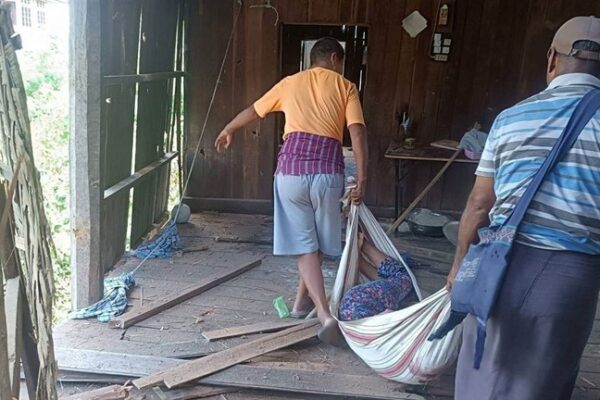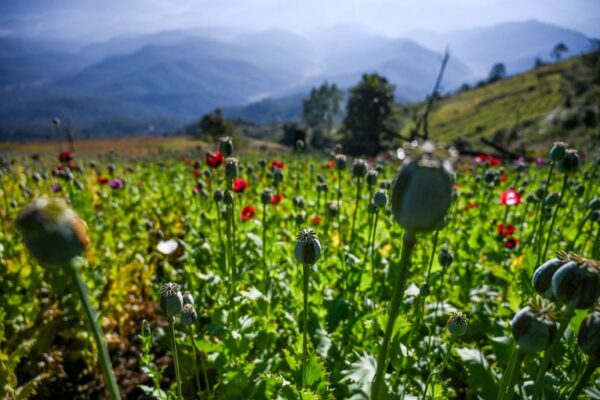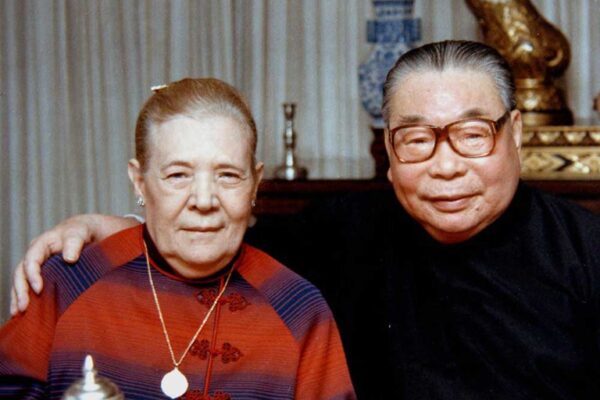As Myanmar’s civil war approaches its third year, intensified fighting across the country this year between ruling junta forces and resistance fighters has destroyed villages and parts of towns, displacing hundreds of thousands of civilians, most of whom are women and children. The number of internally displaced persons, or IDPs, reached more than 1 million this year, nearly 11,000 of whom fled to neighboring India and Thailand, according to a United Nations report. “The lives and properties of our people were destroyed,” said Zin Mar Aung, foreign affairs minister under the parallel National Unity Government, noting the junta’s burning of villages, air strikes targeting civilians and mass killings. At least 330 women died this year as a result of attacks by junta forces amid the escalation of armed conflict, said Tin Tin Nyo, general secretary of the Women’s League of Burma. “The number of civilian casualties increased due to artillery attacks and air strikes,” she told Radio Free Asia. “Most of the victims were women, children and the elderly.” A woman killed by an artillery shell fired by Myanmar junta forces is carried by rescuers in Noe Koe village in Kayah state’s Loikaw township, Aug. 31, 2023. (Karenni Human Rights Group) Since the end of October, the number of internally displaced persons also increased, with most being women and children, Tin Tin Nyo said. “After a country falls under the rule of dictators, it loses the rule of law and justice,” she said, adding that her organization has seen an uptick in gender-based violence, abuse by husbands amid economic decline, and a growing number sex workers. “These are both visible and invisible challenges,” said the women’s rights advocate. “2023 was full of severe hardship for women.” ‘Lost hope’ Yu Yu, a woman who fled amid armed clashes in eastern Myanmar’s Kayah state, said she has suffered trauma as an IDP. “We are surviving on the food of donors as we have no jobs,” she said. “We have lost hope.” Women who left their jobs to join the Civil Disobedience Movement, or CDM, to resist the military rule following the February 2021 coup say they’ve had difficulties making ends meet while caring for children or aging parents. “My father is 80 years old, my mother is also elderly, [and] they are not in good health,” said Khin May, who used to teach at a private high school in Bago region but quit to join the CDM. “It is very difficult for us while I have no job,” she said, adding that she believes the resistance forces will triumph over the junta in 2024. Hla Win, who lost her leg to a landmine, walks with crutches at a camp for internally displaced people near Myanmar’s Pekon township, July 29, 2023. (AFP) Children have suffered amid the civil war as well, and more than 560 have died since the military seized control from the civilian-led government in the February 2021 coup, according to Aung Myo Min, the NUG’s human rights minister. Since Dec. 21, four children between the ages of 8 and 11 were killed in Rakhine state’s Mrauk-U township, a 9-year-old child was killed in Namtu in northern Shan state, and a seven-year-old girl died in an attack by junta troops in Sagaing region’s Paungbyin township, according to figures compiled by RFA. “This is a war crime,” said Aung Myo Min. “It’s everyone’s responsibility to protect children at all times, but we have seen almost every day that killings are taking place where there are children as they sleep alongside their families, as well as the deaths of pregnant mothers.” Utter despair The death of children are often directly linked to women dying mid the fighting, said Thandar, head of gender equality and women’s development under the NUG’s Ministry of Women, Youth and Children’s Affairs. “For example, in Sagaing and Magway regions, grown men are performing revolutionary duties, while the women, the elderly and vulnerable groups like children are fleeing together,” she said. “So, if women are hit, children are hit, too.” According to Shan Human Rights Foundation based in Thailand, 28 children were killed due to the junta’s attacks from Oct. 27 to Dec. 27 during the the Three Brotherhood Alliance rebel offensive that has put junta forces back on their heels. People flee a village after renewed fighting between Myanmar’s military and the Arakan Army in Pauktaw township in western Rakhine state, Nov. 19, 2023. (AFP) Air- and land-based artillery strikes are the most common cause of death, and children are among the mass casualties when such attacks occur, death counts indicate. On Apr. 19, nearly 20 children under the age of 18 were killed in an air strike during a gathering in Pa Zi Gyi village in Sagaing region’s Kanbalu township. Eleven others died during an attack on Mon Laik IDP camp near the headquarters of an ethnic army in the town of Laiza in Kachin state on Oct. 9. And eight more children were killed during an aerial bombardment of Vuilu village in Matupi township in western Myanmar’s Chin state on Nov. 15. Roi Ji, 40, told RFA that she was in utter despair because all five of her children died in the attack on the Mon Laik IDP camp. “I can’t think about anything anymore,” she said. “I’m in a state of derangement.” Precarious futures Children who live in war-torn areas no longer have access to schools or adequate nutrition, and face bleak futures. Nwe Nwe Moe, a former teacher at Shwebo Technical College who joined the Civil Disobedience Movement and has since become a member of Yinmarbin-Salingyi multi-village strike committee in Sagaing region, said she dare not think about the future of the children living among the chaos of war. “I’m concerned about whether the children will be able to develop into capable young people because there is no safety, no access to study, health care, or nutritious food for them,” she said. “I have a sinking feeling about those who are in life-threatening and emotionally insecure situations.” People…







